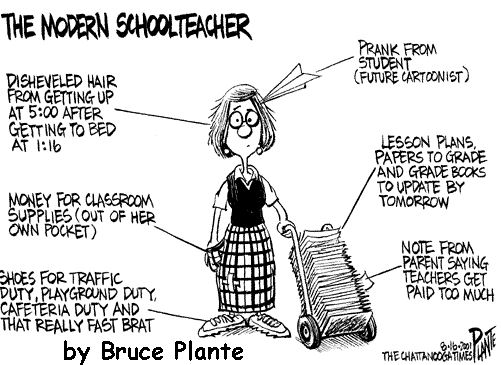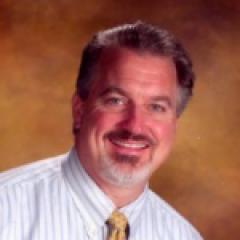Bad Teachers! Eek!
Dana Goldstein writes an interesting piece about our nation's obsession with "bad" teachers:
But Nutting’s narrative is an extreme example of another genre, as well: the story of the despicable, or at least morally compromised, teacher. Claire Messud’s divisive novel, The Woman Upstairs, features a single, childless woman who obsessively attempts to appropriate the happy family life of one of her students. Bad Teacher, a low-IQ Hollywood comedy starring Cameron Diaz, has now been turned into a CBS television series. In the high-minded indie film Half Nelson, Ryan Gosling played a schoolteacher who is a secret drug addict. The contradiction inherent in a bad teacher makes for an entertaining character, which is why the meme has a long, rich history from Nicholas Nickleby to the Harry Potter series. But the bad teacher has also become an overhyped target for our national anxiety about public education.
[...]
But media reports of nightmare teachers tend to obscure how rare they really are. In New York City since 2007, 128 teachers have been accused of sexual misconduct — less than two-tenths of 1% of the city’s massive 80,000-person teacher corps. In general, our national political focus on making it easier to fire ineffective teachers — and here I’m talking mostly about those who are educationally ineffective, not legally criminal — tends to leave the public with an inflated sense of how many bad teachers are out there, seeding distrust in the entire endeavor of public education. As a longtime education reporter, I’ve asked a number of no-excuses school reformers for their estimate of the number of working teachers who ought to leave the profession. The response I hear most often is “5% to 10%,” a stat supported by the research of Stanford University labor economist Eric Hanushek. That means even the toughest reformers believe 90% to 95% teachers are capable of improving their practice and becoming effective professionals. [emphasis mine]
That Hanushek study is probably one of the most influential pieces of research for the reformy types; too bad it is based entire on projections and not on actual policy outcomes. As Bruce Baker and Matt DiCarlo have both pointed out, the actual public education system is far too complex for us to believe that Hanushek's thought experiments will inevitably lead to the improvements he estimates.
It's also worth pointing out also that Hanushek is not saying that those 5% to 10% of teachers are "bad" in the sense that they don't meet some criteria he's set out. They're in the bottom 5% because... well, they're in the bottom 5%, and someone's got to be there. Even if Hanushek's theory became reality and all students saw a rise in test scores, he would still keep churning that bottom 5% simply because they were at the bottom of the distribution, not because they were doing a "bad" job.
(And how would you ever come up with a system that assigns students to those "bad" teachers if a steady 5% of them were always "bad"?)
So the notion that we have any real sense of how many "bad" teachers are out there is yet another reformy fantasy. But it's a useful fantasy: it keeps the focus on teacher quality instead of on issues like equity in school funding and out-of-school variables. It absolves reformyists so they don't have to acknowledge poverty or regressive taxation or racism or our nation's lack of economic opportunity.
Goldstein is quite right: the caricature of the "bad" teacher didn't happen in a vacuum. It's taken a steady, deliberate stream of self-righteous invective from folks like Campbell Brown, coupled with a what appears to be yet another deliberate misreading of research, to create a generalized perception that hordes of "bad" teachers are marauding through the halls of our schools.
Gee, I wonder if that's going to help recruit bright young people into the profession or not? Thinking...
This blog post has been shared by permission from the author.
Readers wishing to comment on the content are encouraged to do so via the link to the original post.
Find the original post here:
The views expressed by the blogger are not necessarily those of NEPC.

